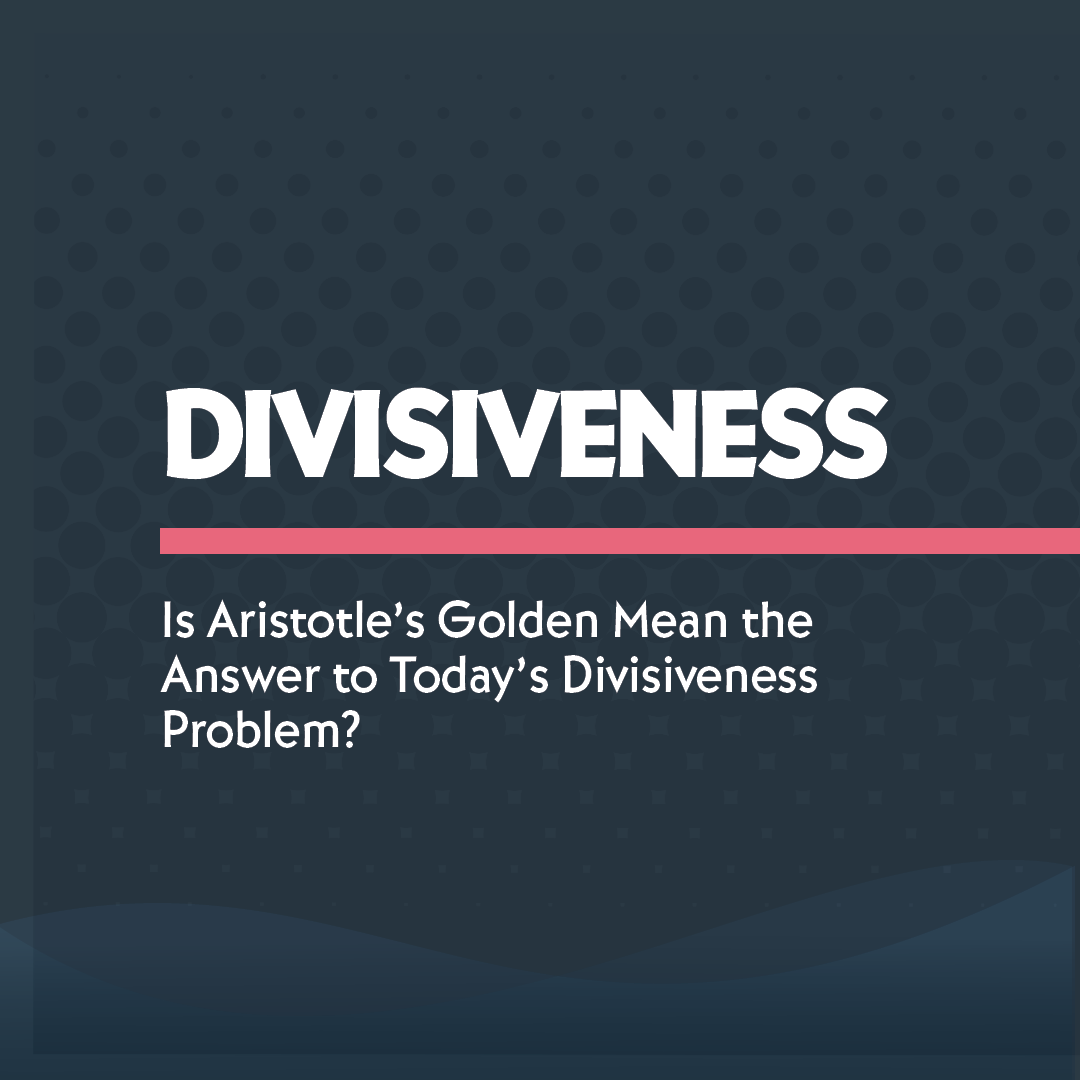Is Aristotle’s Golden Mean the Key to Overcoming Workplace Divisiveness?

In today’s fast-paced and often polarized work environment, team dynamics and office politics can easily become sources of friction. Many organizations turn to personality and character assessments to foster self-awareness, improve communication, and enhance team collaboration. However, the principles behind these modern tools are far from new. More than 2,000 years ago, the Greek philosopher Aristotle introduced the Golden Mean, a framework for achieving balance in thought and behavior—a concept that remains relevant for addressing workplace conflicts today.
Understanding Aristotle’s Golden Mean: Finding Balance in Leadership & Teamwork
Aristotle’s philosophy builds on virtue ethics, an approach to morality that emphasizes who we are rather than just what we do. Unlike ethical frameworks such as:
Consequentialism, which focuses on the goodness of outcomes
Deontology, which emphasizes moral duty
Utilitarianism, which prioritizes the greatest benefit for the majority
Virtue ethics highlights character strength and moral virtue as the foundation for positive behaviors and decision-making. Aristotle argued that achieving self-awareness and balance in our responses leads to stronger relationships, better decision-making, and long-term success—both personally and professionally.
The Danger of Extremes: Virtues vs. Vices in Workplace Behavior
A core principle of the Golden Mean is that virtues can become vices when taken to extremes. This concept is especially relevant in workplace leadership and team collaboration. Consider these common workplace scenarios:
Courage is a virtue, but too much of it leads to recklessness, while too little results in fear and inaction.
Assertiveness is essential for leadership, but excessive assertiveness becomes aggression, while too little turns into passiveness, leading to miscommunication and disengagement.
Confidence helps leaders make decisions, but overconfidence creates arrogance, while lack of confidence leads to self-doubt and hesitation.
By identifying and adjusting overused or underused character strengths, leaders and teams can strike a balance, fostering collaboration, innovation, and psychological safety in the workplace.
How Aristotle’s Golden Mean Can Reduce Workplace Divisiveness
Toxic workplace environments often stem from imbalanced behaviors that escalate into conflict, misalignment, and disengagement. Aristotle’s Golden Mean encourages individuals to seek the middle path—a place of equilibrium where they can communicate effectively, collaborate meaningfully, and lead with wisdom.
At Tilt365, we apply this principle by helping leaders and teams recognize where they may be overusing or underusing certain character strengths. Our science-backed character assessments provide insight into team dynamics, leadership styles, and communication patterns, allowing organizations to cultivate self-awareness, adaptability, and workplace agility.
Tilt365 Agility Suite: Three Assessments to Balance Extremes
True Tilt Personality Profile™ & Unique Amplifier™ – This assessment helps individuals identify their natural personality preferences and understand how they may be amplifying certain behaviors to extremes, either overusing or underusing their strengths. This creates a foundation for self-awareness, guiding individuals toward more balanced behavior in different contexts.Agility Growth Tracker™ – Leadership requires adaptability. This tool helps individuals track their growth in agility and character strengths over time, ensuring they are making progress toward balanced and effective leadership without leaning too far in one direction.
Team Agility Analytics™ – Workplace divisiveness often stems from team-level imbalances in thinking, behavior, and communication. This assessment identifies team dynamics and blind spots, highlighting where the group may be over-relying on certain strengths while neglecting others—ultimately helping teams achieve a well-rounded, high-performance culture.
By leveraging these tools, organizations can diagnose, understand, and resolve divisive behaviors in teams before they escalate, helping create a more engaged, psychologically safe, and agile workplace.
Using Tilt365 Assessments to Strengthen Workplace Relationships
By leveraging Tilt365 character strength assessments, organizations can:
Identify leadership blind spots – Understanding how overused or underused traits impact decision-making.
Improve team collaboration – Recognizing how character imbalances lead to misunderstandings and conflict.
Enhance workplace culture – Creating an inclusive and engaged workforce by developing balanced leadership.
Prevent divisiveness – Addressing root causes of dysfunction before they escalate into workplace toxicity.
For example, if a team leader is overly aggressive, team members may feel disempowered and disengaged. On the other hand, a leader who avoids confrontation may allow problems to fester, leading to unclear expectations and reduced accountability. The Tilt365 framework helps leaders and teams find the “mean” between these extremes, fostering a culture of trust, psychological safety, and innovation.
Achieve Balance and Agility with Tilt365
Aristotle’s Golden Mean remains a powerful tool for personal and professional development, offering timeless wisdom that aligns seamlessly with modern leadership principles. By applying these concepts through Tilt365’s character strength assessments, organizations can cultivate a workplace that values balance, resilience, and adaptability—driving sustainable success in an ever-changing business world.
Ready to unlock greater agility and reduce divisiveness in your workplace? Learn how Tilt365 character strength assessments can help your team thrive and transform today!
Explore Tilt365 Assessments Now!


